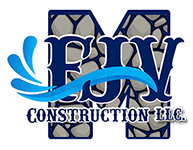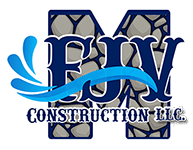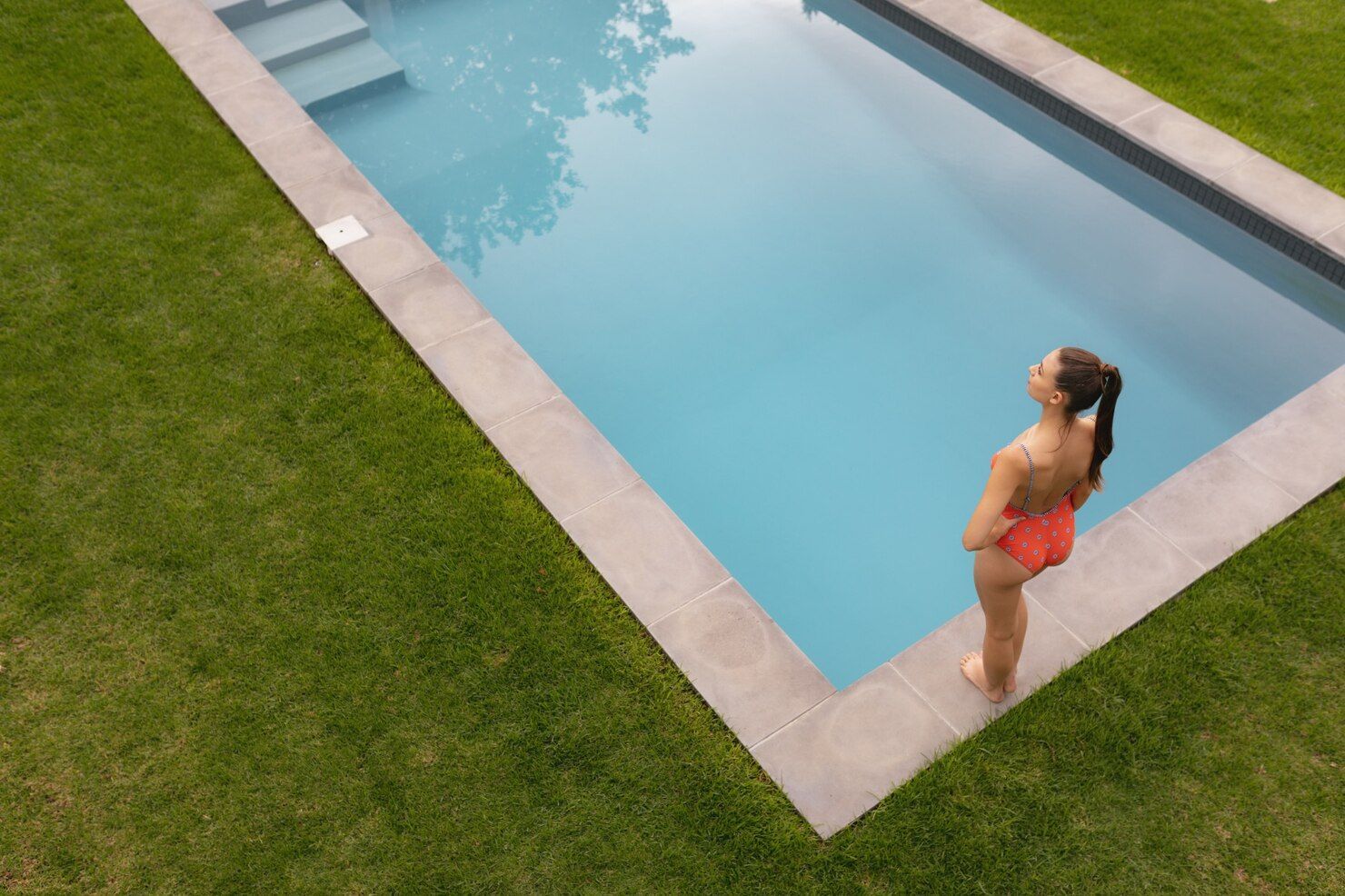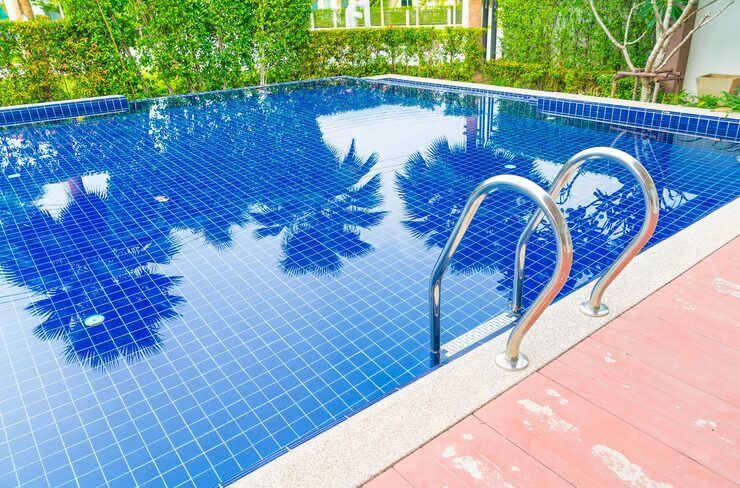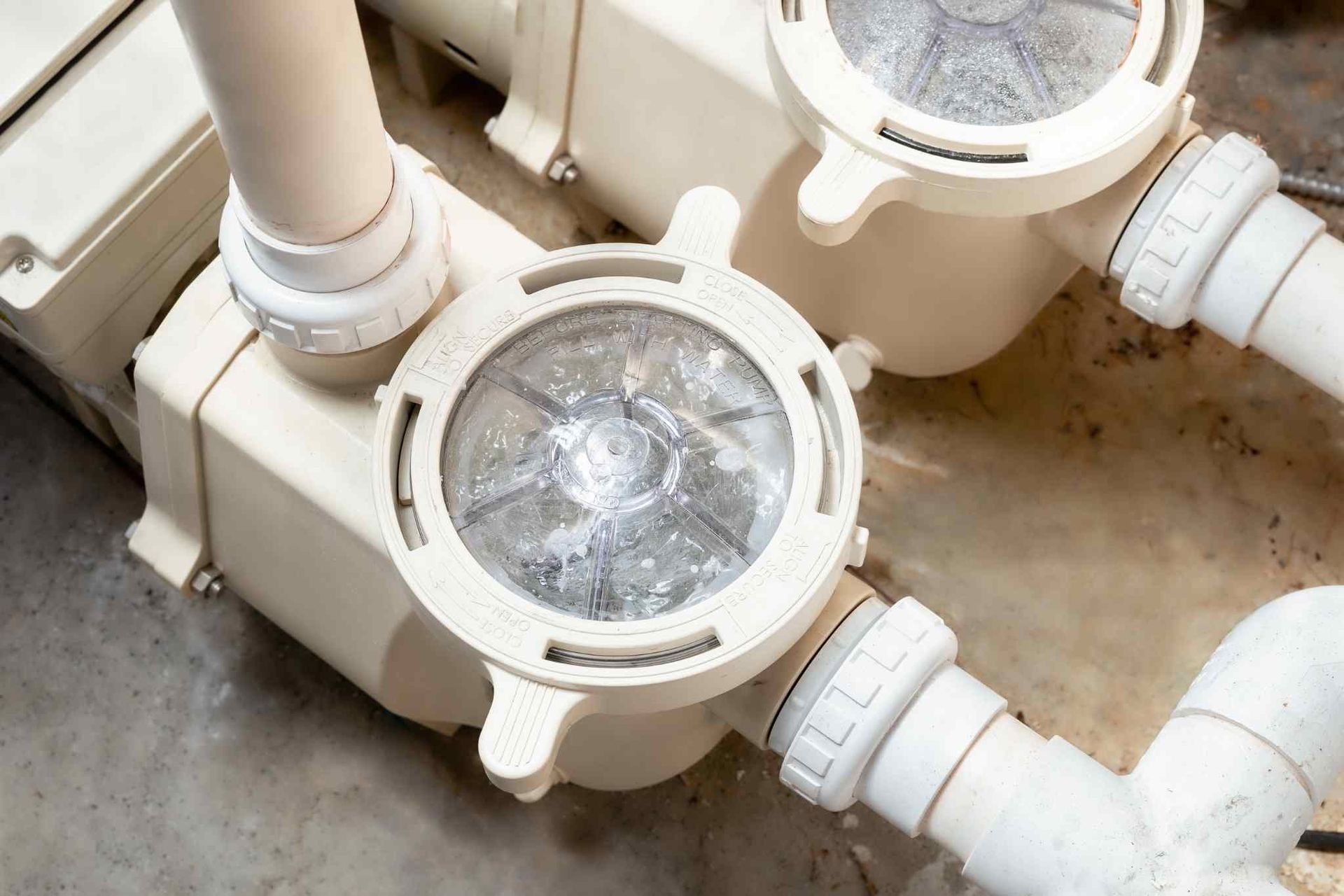Pool Installation Guide: 5 Key Factors to Determine the Ideal Pool Depth
When planning a pool installation for your backyard, it's important to consider the pool's depth carefully. The depth of your pool impacts safety, functionality, and budget considerations. This guide explores five key factors that should influence your decision regarding the ideal pool depth, whether you envision a pool for leisure, exercise, diving, or a combination of purposes.
Table of Contents
- Key Takeaways
- What's the Purpose of the Pool?
- What's the Ideal Safe Height for Adults?
- How Can I Keep My Children Safe?
- Will There Be Any Diving?
- What's My Budget?
- Why Hiring Professionals is Beneficial for Your Pool Installation in Bethel, CT
- Factors to Consider When Selecting a Pool Installation Company
- Frequently Asked Questions
- Conclusion
Key Takeaways
✔ Choose your pool's depth based on its intended use, such as relaxation or fitness.
✔ A depth of 3 to 5 feet is ideal for adult safety, with clear markings and features for varied heights.
✔ Prioritize child safety with designated shallow areas, fencing, alarms, and supervision.
✔ Adjust pool depth according to safety regulations and diving type for diving activities.
✔ Pool depth affects both installation and maintenance costs; consider budget implications.
1. What's the Purpose of the Pool?
When contemplating the purpose of your pool, it's crucial to define your objectives clearly before embarking on the pool installation journey. Here are some common goals and considerations to ponder:
Recreation and Relaxation
Creating a serene oasis for relaxation and leisure is a common aspiration for many pool owners. In such cases, a shallow pool is often the ideal choice. A depth ranging from 3 to 5 feet balances, providing enough water for a refreshing dip and allowing adults to stand and socialize in the pool comfortably. This depth range is perfect for lounging, floating on inflatables, or enjoying a peaceful soak while maintaining safety and convenience.
Fitness and Lap Swimming
For those with a strong fitness focus, transforming your pool into a space for regular swimming exercises requires a different approach. Consider installing a dedicated lap swimming area with a consistent depth of 4 to 5 feet.
This depth range facilitates proper stroke execution, allowing adults to swim smoothly and effectively. Whether practicing freestyle or perfecting your butterfly stroke, having a pool with the right depth ensures that your swimming experience is enjoyable and conducive to maintaining a healthy lifestyle.
Combination Pools
Many pool owners seek versatility in their pool's functionality to cater to various purposes. If this is your plan, you must strike a harmonious balance between different depths within your pool. One popular approach is to have a multi-depth pool featuring a shallow end for relaxation and a deeper section for diving and engaging in water sports. By combining various depths, you can offer an all-encompassing aquatic experience that caters to both leisurely relaxation and active play.
Climate Considerations
Local climate conditions should be considered when determining the optimal pool depth. Shallower pools are often more enjoyable in regions with warmer climates. These pools are perfect for cooling off during hot summer days, and their reduced depth makes it easier to warm up in the sun.
On the other hand, in colder areas, opting for deeper pools can help maintain a comfortable water temperature. Deeper pools are less prone to temperature fluctuations, ensuring that you can enjoy your pool even during cooler seasons. You can maximize your swimming experience year-round by aligning your pool depth with your local climate.
2. What's the Ideal Safe Height for Adults?
Ensuring safety in your pool is of utmost importance, and one of the first considerations is finding the right depth for adults. Here's a practical breakdown of what you should keep in mind:
Standard Pool Depth
The ideal pool depth for most adults allows them to stand comfortably with the water reaching chest-high. This typically falls within the 3 to 5 feet range. In this depth range, most people can enjoy the pool without feeling overwhelmed or struggling to stay afloat. It balances providing enough water for leisurely activities and ensuring swimmers' safety.
Consideration of Differing Heights
It's important to acknowledge that pool users vary in height. Consider creating different depth zones within your pool to cater to everyone's needs. For example, you can have a shallow area with a depth of 3 feet, gradually deepening to a maximum of 5 feet. This design allows swimmers of all heights to find a comfortable space within the pool.
Sloped Pool Designs
Sloped pool bottoms offer a practical solution for achieving gradual depth changes. Besides functionality, this design adds an aesthetic touch to your pool. It ensures swimmers can smoothly transition from shallow to deep water, enhancing safety and convenience. Sloped pool designs are particularly favored for family pools where children and adults need varying depths to enjoy the water safely.
Depth Markings and Safety Features
Regardless of your chosen pool depth, incorporating clear depth markings is essential. These markings serve as visual cues, helping swimmers gauge the water depth accurately. This information empowers them to make informed decisions about their activities in the pool.
Investing in safety features like pool lighting and emergency response equipment further enhances overall safety. Proper lighting ensures visibility, even during evening swims, while emergency equipment is ready to address any unforeseen incidents promptly.
3. How Can I Keep My Children Safe?
When keeping your children safe around the pool, prioritizing their well-being is paramount. Here are practical steps to ensure their safety:
Child-Friendly Features
Incorporate child-friendly elements into your pool design to create a safe environment. Designate shallow areas with depths of approximately 3 feet where young children can play comfortably under supervision.
Additionally, consider installing safety features such as fencing and a secure pool cover. These measures prevent unsupervised access to the pool area and act as physical barriers to keep children out of harm's way.
Pool Alarms and Monitoring
Enhance child safety with the use of pool alarms and surveillance systems. These tools serve as vigilant guardians of your pool area, instantly alerting you when someone enters the vicinity.
This added layer of security provides peace of mind, especially when you're not directly supervising the pool. Ensure that pool alarms and surveillance systems are correctly installed and routinely maintained to guarantee their effectiveness.
Swimming Lessons and Supervision
One of the most effective safety measures for children is teaching them how to swim. Enroll your children in swimming lessons early, allowing them to acquire essential water safety skills.
However, even if your children are proficient swimmers, always appreciate the importance of vigilant supervision.
Regardless of their swimming abilities, always be present and attentive when they are in or around the pool. Supervision is a crucial component of child safety that should always be noticed.
Safety Guidelines
Establish clear and concise safety guidelines for your children and guests using the pool. Emphasize the cardinal rule of never swimming alone. Encourage responsible behavior around the pool area, such as no running or diving in non-designated areas.
Setting these expectations creates an atmosphere of awareness and responsibility, ensuring everyone understands safety's importance.
4. Will There Be Any Diving?
When contemplating the possibility of incorporating diving into your pool experience, several key considerations should guide your decisions:
Types of Diving
Understanding the specific types of diving you intend to accommodate is essential. Different diving activities require varying pool depths to ensure safety. For instance, shallow diving typically necessitates a pool depth of at least 8 feet, providing adequate clearance for the diver.
In contrast, springboard diving calls for a deeper pool, with depths ranging from 10 to 12 feet to accommodate the diver's trajectory and entry angle. Determining the type of diving you wish to include can tailor your pool's depth to ensure a safe and enjoyable experience.
Diving Board Installation
If you opt to include a diving board in your pool design, prioritizing safety is paramount. Ensure that the diving board is correctly installed and adheres to established safety standards. Follow the manufacturer's guidelines meticulously, both during installation and usage.
Regular inspections and maintenance of the diving board are essential to uphold its safety and functionality. Always remember that safety should be the foremost concern when considering diving boards, as they play a central role in ensuring a secure diving experience.
Depth and Regulations
Local regulations may dictate the minimum depth required for safe diving in residential pools. To ensure compliance with these regulations and prioritize safety, consult your local authorities or pool experts.
Complying with these regulations is vital, as non-compliance can jeopardize divers' safety and lead to legal complications and liabilities. Prioritizing the safety of all pool users should be the guiding principle when navigating diving depth regulations.
Alternatives to Diving
Exploring alternative options is prudent if your pool's physical constraints or depth limitations do not permit safe diving. Swim platforms, water slides, and other pool accessories can offer thrilling water experiences without needing a deep pool.
These alternatives can provide a sense of excitement and mimic some aspects of diving while adhering to your pool's specific depth constraints. Considering these alternatives, you can still offer engaging aquatic activities to enhance your pool's recreational value.
5. What's My Budget?
When embarking on a pool installation project, your budget is a critical factor that significantly influences the depth of your pool. To make informed decisions regarding your pool's depth, consider the following financial aspects:
Initial Installation Costs
The depth of your pool can impact the initial installation expenses. Deeper pools typically require more excavation, additional materials, and increased labor, all of which can contribute to higher upfront costs.
It's essential to thoroughly evaluate your budget at the outset of your project and determine how much you can comfortably allocate to pool installation in Bethel, CT. By setting a clear budget from the beginning, you can make informed choices that align with your financial resources.
Ongoing Maintenance Costs
Beyond the initial installation costs, it's crucial to account for the ongoing expenses associated with pool ownership. Deeper pools may necessitate more water, energy, and chemicals to maintain water quality and temperature.
As you plan your budget, consider the long-term implications of your pool depth choice. Assess how the depth may impact your monthly or annual maintenance costs, ensuring you can sustain the pool over time without straining your finances.
Long-Term Considerations
Think beyond the immediate costs and consider the long-term financial implications of your pool depth decision. A well-planned pool that aligns with your needs and preferences can enhance your property's overall value.
Should you decide to sell your home in the future, a thoughtfully designed and maintained pool can be a selling point that attracts potential buyers. Evaluating the long-term financial benefits of your pool depth choice can help you make a decision that meets your current desires and offers potential returns on your investment.
Cost-Benefit Analysis
Conducting a cost-benefit analysis is advisable to make a well-informed decision regarding your pool's depth. Evaluate the trade-offs associated with different pool depths and assess how each option aligns with your budget and overall goals.
Consider installation costs, ongoing maintenance expenses, long-term property value, and personal preferences. Find a balanced approach that meets your desires and financial constraints while ensuring your pool remains enjoyable and sustainable.
Why Hiring Professionals is Beneficial for Your Pool Installation in Bethel, CT
Installing a pool adds value and enjoyment to your property. Hiring professional installers is crucial for a successful and safe pool installation project in Bethel, CT. Here's why experts are essential for pool installation:
Expertise and Experience
Professional pool installation companies have the expertise and experience needed to tackle the complexities of pool construction. They understand the nuances of excavation, plumbing, electrical work, and structural integrity, ensuring that your pool is built to the highest standards. Their experience allows them to anticipate and address potential challenges, minimizing the risk of costly mistakes.
Compliance with Regulations
Pool installation in Bethel, CT, is subject to various local and state regulations, including safety codes, zoning laws, and environmental requirements. Professional pool installation companies are well-versed in these regulations. They can ensure that your pool complies with all necessary permits and standards. This not only keeps your project legal but also guarantees the safety of your pool.
Customization and Design
Professional pool installation companies can work with you to customize your pool according to your specific needs and preferences. They can help you choose the right size, shape, and depth, considering factors like the pool's purpose and your budget. Their design expertise can create a pool that perfectly complements your outdoor space.
Time Efficiency
A professional pool installation team can complete the project more efficiently than attempting it yourself. They have the necessary equipment, resources, and manpower to expedite the process while maintaining quality. This means you can start enjoying your pool sooner and avoid unnecessary delays.
Quality Materials and Equipment
Professional pool installation companies have access to high-quality materials and equipment that may not be readily available to homeowners. They can source durable, long-lasting materials and install efficient filtration and circulation systems, ensuring the longevity and functionality of your pool.
Cost-Effective Solutions
While it may seem counterintuitive, hiring professional pool installation companies can be cost-effective in the long run. They can help you avoid costly mistakes that could arise from DIY projects. Additionally, their industry connections may enable them to secure better-quality materials, ultimately saving you money.
Warranty and Support
Reputable pool installation companies often provide warranties for their work. If any issues arise after the installation, they will address and rectify them at no extra cost. Such warranties offer peace of mind and protect your investment.
Safety First
Pool installation involves various safety considerations, from proper fencing and gates to electrical wiring and drainage. Professional pool installation companies prioritize safety throughout the project, reducing the risk of accidents and injuries associated with improperly installed pools.
Factors to Consider When Selecting a Pool Installation Company
Choosing the right pool installation company ensures a smooth and successful project. Here are the factors to consider when making this important decision:
Experience and Reputation
Look for a pool installation company with a solid track record and a good reputation in the industry, like FJV Construction - Bethel, CT. Consider how long they have been in business and whether they have a portfolio of completed projects you can review. Online reviews and referrals from friends or neighbors can also provide valuable insights into their reputation.
Licensing and Insurance
Ensure the pool installation company is properly licensed and insured. A reputable pool installation company should have the necessary licenses to operate in your area and carry insurance to protect against accidents or damage that may occur during the installation process.
Portfolio and References
Request a portfolio of their previous pool installations. This will give you a sense of their design and construction capabilities. Additionally, ask for references from past clients and contact them to inquire about their experiences with the company.
Expertise in Pool Types
Depending on your preferences, you may be interested in different types of pools, such as in-ground, above-ground, fiberglass, or concrete. Ensure that the company has expertise in the type of pool you want, as each type comes with unique challenges and requirements.
Design and Customization
If you have specific design ideas or customization requirements for your pool, choose a company that can work with you to bring your vision to life. They should be able to provide design options and tailor the pool to your needs and preferences.
Compliance with Regulations
Pool installation is subject to various regulations and permits. Ensure the company is well-versed in local building codes and can handle the permitting process on your behalf. Compliance with regulations ensures that your pool is safe and legal.
Clear Contract and Pricing
Review the contract carefully before signing. It should outline all aspects of the project, including the scope of work, materials used, project timeline, and payment terms. Be wary of any hidden fees or vague terms in the contract.
Warranty and After-Sales Support
Inquire about the warranty offered by the pool installation company for their work. A reputable pool installation company should stand behind its craftsmanship and provide a warranty covering any issues arising after pool installation in Bethel, CT. Additionally, ask about their ongoing maintenance and support availability to keep your pool in optimal condition.
Frequently Asked Questions
What is the most important part of a pool?
The pool's filtration system is often considered the most crucial component. It plays a vital role in maintaining water quality by removing debris and contaminants, ensuring your pool water remains clean and safe for swimming.
How do I keep my pool water clean?
To keep your pool water clean, regular maintenance is essential. This includes skimming the surface for debris, maintaining proper chemical balance, running the pool pump and filter, and cleaning or backwashing the filter as needed. Routine vacuuming and brushing of pool walls and floors also help to prevent algae growth and maintain water clarity.
What concrete is best for pools?
Shotcrete and gunite are two popular concrete options for pool construction. Both are highly durable and suitable for pool shells. They are pneumatically applied, allowing for versatile and precise shaping of the pool. It's crucial to work with experienced pool installation companies to choose the best option based on your specific pool design and needs.
How thick should concrete be for a pool?
The thickness of concrete for a pool shell typically ranges from 6 to 8 inches. However, the thickness can vary depending on the pool's size, design, and local building codes. Consult a pool construction expert to determine the appropriate thickness for your project to ensure structural integrity and longevity.
Take the Plunge—Your Dream Pool Awaits!
Choosing the right pool depth impacts safety, function, and cost. Consider your pool's purpose, safety, diving plans, and budget. Whether for relaxation, fitness, or water sports, your pool's depth is the foundation of your aquatic experience. By considering these factors and seeking professional guidance, you can ensure your pool aligns with your vision, enhancing your home's value and creating lasting memories.
Trust
FJV Construction - Bethel, CT's experts for top-notch pool installation services. Let us help you transform your backyard into a paradise.
Contact us today and make your dream pool a reality in
Bethel, CT!
